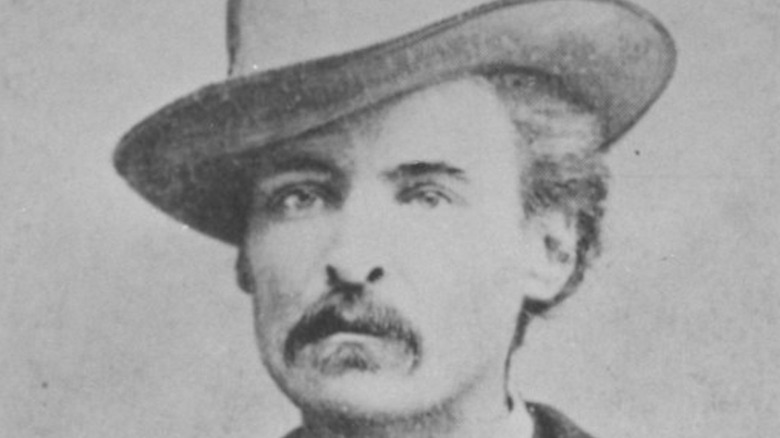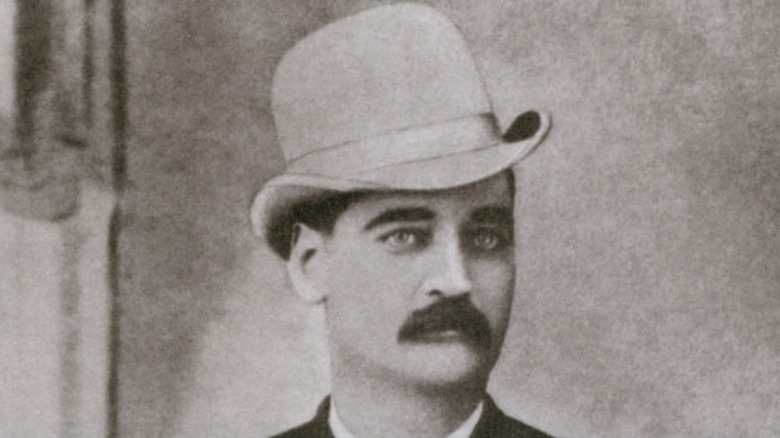How Did Jim Courtright Die?
Jim Courtright is considered one of the greatest marksmen of the late 19th century, purportedly better than the likes of Bill Hickok and even Wyatt Earp. A Civil War veteran, Courtright continued to serve as an army scout after the war. He and his wife later tried their hands at farming and performing as part of a sideshow, after which they moved to Fort Worth, Texas. Here, Courtright managed to become a marshal in addition to several other legitimate and illegitimate occupations.
While he is remembered for halving the city's murder rate, Courtright was himself an outlaw in his conduct, running protection rackets almost wherever he went and having no doubt killed several people before and after his election. In 1887, Courtright targeted a saloon known as The White Elephant, likely figuring it to be in need of his "protection," as he did many Fort Worth establishments (via Texas Escapes). This proved to be a fateful decision for him, though, as the owner was a similarly renowned gunfighter, Luke Short.
Courtright drew his pistol on Short, but couldn't get further than that
One night after the two rivals argued, Jim Courtright insisted that the discussion be brought outside. The two left, reaching the front of Ella Blackwell's shooting gallery, where Courtright began to insist that Short not draw a pistol were he to have it on him. Meanwhile, Courtright himself was clearly armed with several, per the later account of Short's friend "Bat" Masterson (pictured above). Short lied and told him he was unarmed, and it was then that the marshal allegedly drew his own pistol (via Texas Escapes).
Yet for whatever reason, he never managed to fire a shot — the weapon possibly malfunctioned or got caught on his clothing. Nevertheless, the gesture was returned by Short, and his bullet hit Courtright in the thumb. Afterward, Courtright attempted to switch hands before Short fired four more shots (via Legends of America). Thanks to the testimony of Jake Johnson (a mutual friend of Short and Courtright), which supported this timeline, Short was found to have acted in self-defense and was released from jail.

